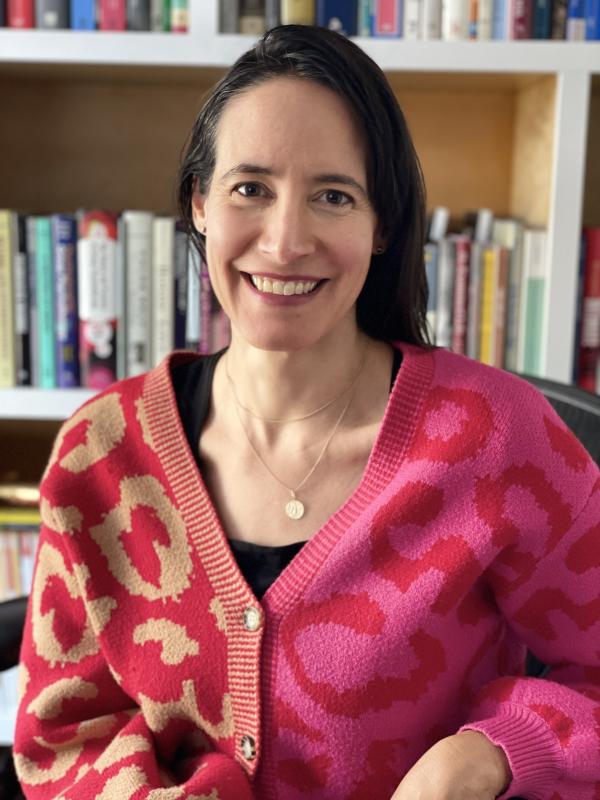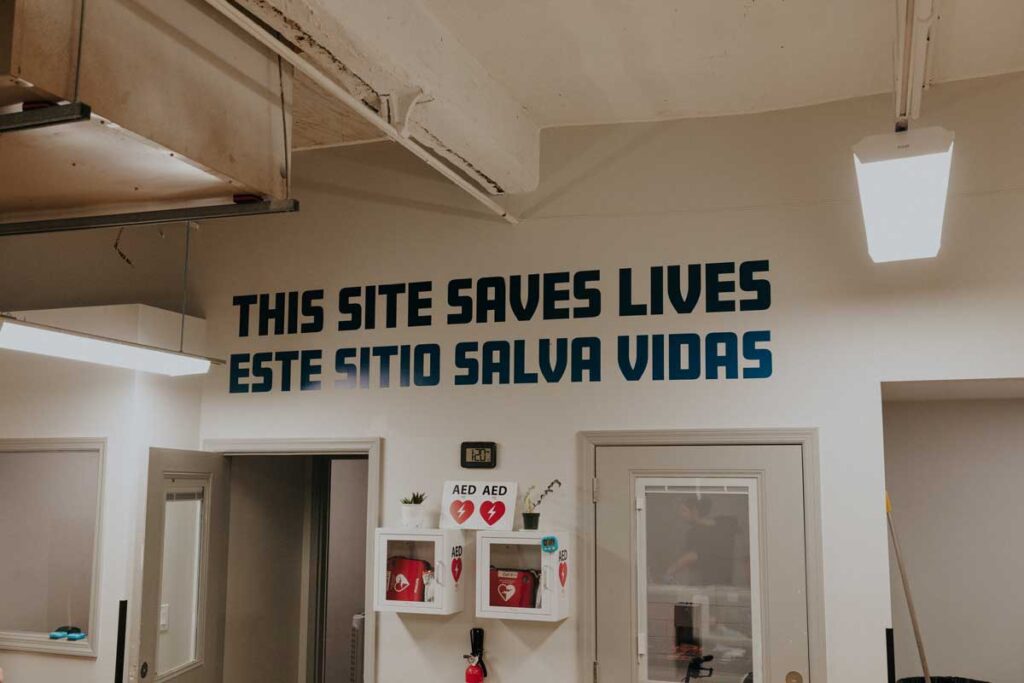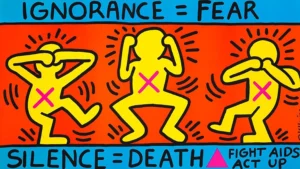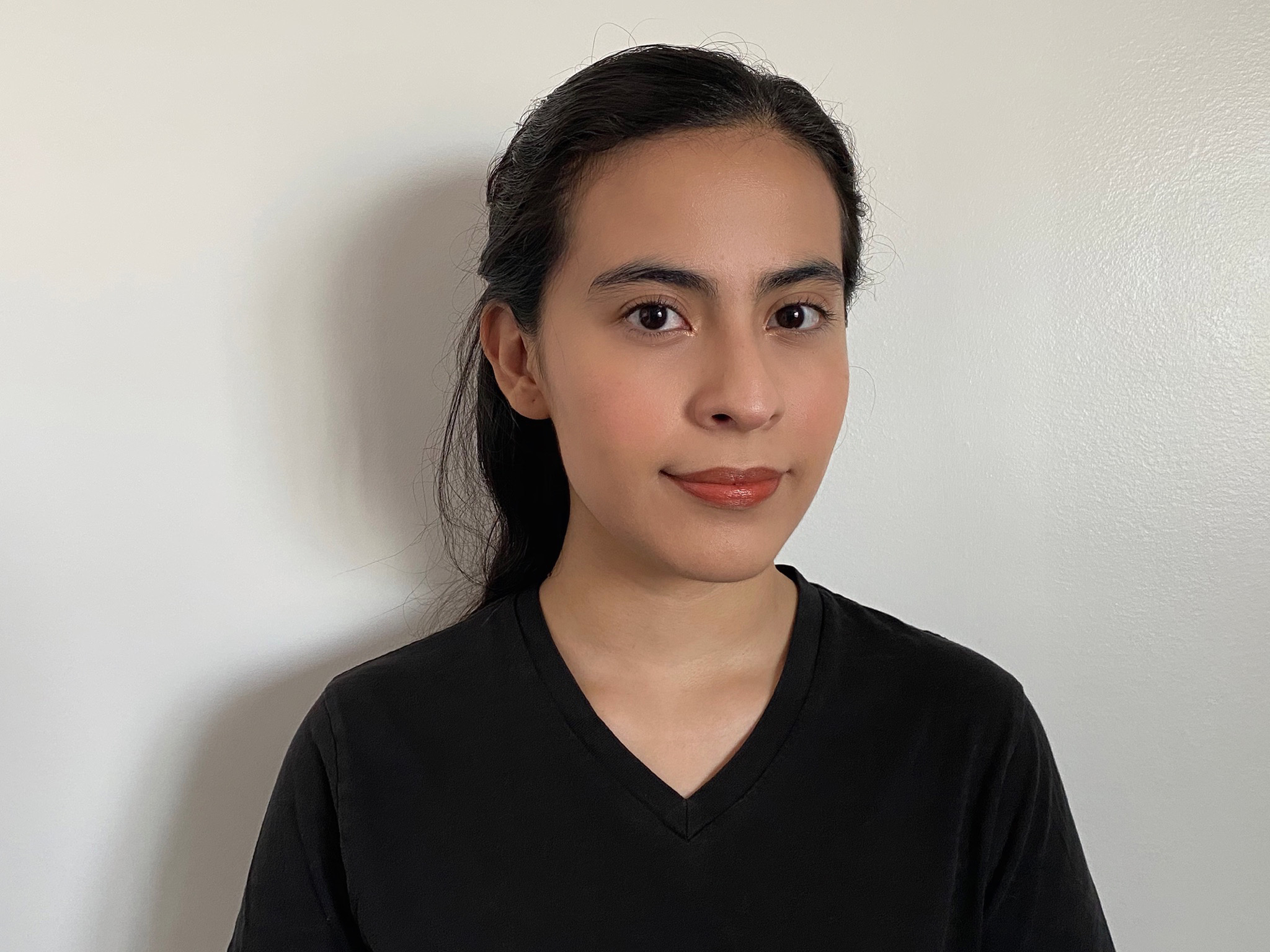
Dr. Teresa López-Castro. Photo: CCNY
Mental health equity is based on all individuals — regardless of race, gender, ethnicity, disability, and socioeconomic status — having accessible and quality healthcare services and support. For Dr. Teresa López-Castro, associate professor in the Psychology Department at City College and a licensed clinical psychologist, equity in the mental health field drives her research and studies.
López-Castro was drawn to psychology due to her deep interest in people and storytelling, and growing up closely with her mother, an infectious disease doctor who cared for AIDS patients from the 1990s until 2021.
“I grew up around the healing and helping profession, which I think can get transmitted generationally,” López-Castro said in an interview. “I believe that with psychology, in many ways, we can heal each other and our communities by listening and really considering the stories we tell one another.”
After earning her Ph.D. in clinical psychology at the CUNY Graduate Center, López-Castro focused her research on integrative care for addiction and mental health issues.
In her studies, she explores the intersections of mental health and trauma-related disorders and addictions, where her objective is to unravel the complexities of these relationships and create innovative and inclusive approaches to interventions and care.
“I’m passionate about my studies because I believe in having equitable access to care and reducing any barriers to that care, so everybody has a fair chance of getting proper treatment and support,” López-Castro said. “Addressing ways to make it easier for people to get healed by tearing down the divisions in care and how we study people’s struggles—addiction here and mental health over there. This is a way that a psychologist can use their work in the service of creating a society that’s committed to equity and justice.”
At CCNY, López-Castro has been a professor since 2014, receiving tenure in 2023, and now exclusively teaching in the Master of Arts Mental Health Counseling Program. The courses she instructs relate to trauma and resilience and explore the assessment, diagnosis, and interventions of trauma-related disorders.
“I am so proud that I am part of a program where I get to train and guide what I consider amazing people who are dedicated to counseling and helping others,” López-Castro said.
In addition to her role as an associate professor, López-Castro is the principal investigator of the Translational Research on Emotions, Addictions, and Trauma laboratory at CCNY, where she studies how substance misuse is linked to traumatic stress and explores how these mechanisms could guide to the development of more individualized treatments.
López-Castro also collaborates with harm reduction organizations such as OnPoint, the first overdose prevention center in the U.S.

Harm reduction site where Dr. López-Castro works. Photo: OnPoint NYC
Harm reduction is a set of practices aimed at minimizing the negative impacts of drugs upon people and communities, which can include but is not limited to reducing or abstaining from drug use. The harm reduction movement has fought for universal health care rights; no matter what a person does or ingests, they deserve access to life-saving health tools like condoms and clean needles.
In the service of public health, harm reduction aims to increase access to evidence-based strategies such as syringe services programs or SSPs and overdose reversal medication.
López-Castro’s recent work in partnership with harm reduction organizations like OnPoint is centered on establishing mental health care at SSPs. For the past three decades, these organizations have significantly helped prevent the transmission of blood-borne diseases in people who inject drugs, most importantly HIV.
“Harm reduction in the U.S. grew as a nation-wide, grassroots movement during the beginning of the AIDS epidemic when injection drug use was one of the drivers of HIV transmission. In the early 1980s the medical profession and other public health leaders actively avoided communicating the risks of sharing and reusing needles in fear of appearing to promote drug use. The lack of light on this caused many people to die,” López-Castro explained. “So, peer-led harm reduction organizations began distributing clean needles, which in many states was illegal. Now, the HIV transmission rate in New York City is remarkably low and that’s very much due to the work of the harm reduction organizations that I collaborate with. Thanks to the distribution of clean needles, medical services, and non-judgmental care people receive there.”
According to the New York City Department of Health, research and studies on SSPs in New York show that HIV transmission in people who inject drugs decreased from 52% in 1990 to 20% in 2000, which then declined further to less than 3% in 2018.
López-Castro’s involvement with harm reduction organizations underscores the importance of integrating mental health interventions into these programs. By doing so, she addresses not only the immediate risks associated with substance use but also the underlying mental health concerns that often accompany substance misuse.
One of her most recent research works is a post-traumatic stress disorder treatment or PTSD trial, funded by a six-year, $7 million grant from the National Institute on Drug Abuse. López-Castro will collaborate with OnPoint and other harm reduction organizations across New York to test and implement a PTSD treatment for telehealth delivery at SSPs.

“Silence=death” poster by Keith Haring, 1989. Photo: The CUNY Graduate Center
“It’s something I look forward to for the next six years,” López-Castro said. “We can now imagine folks at the syringe services programs who need PTSD care being offered evidence-based treatment. We are building alternatives to mainstream clinics with long waitlists and a history of not being very welcoming to people who use drugs.”

Sofia is a graduate student at CUNY Brooklyn College, where she’s pursuing her M.S. in Media Studies. In addition to writing for The RICC, she’s a writer for the features section of Brooklyn College’s student-run newspaper, The Vanguard. She is also a dedicated writer for the Brooklyn News Service.